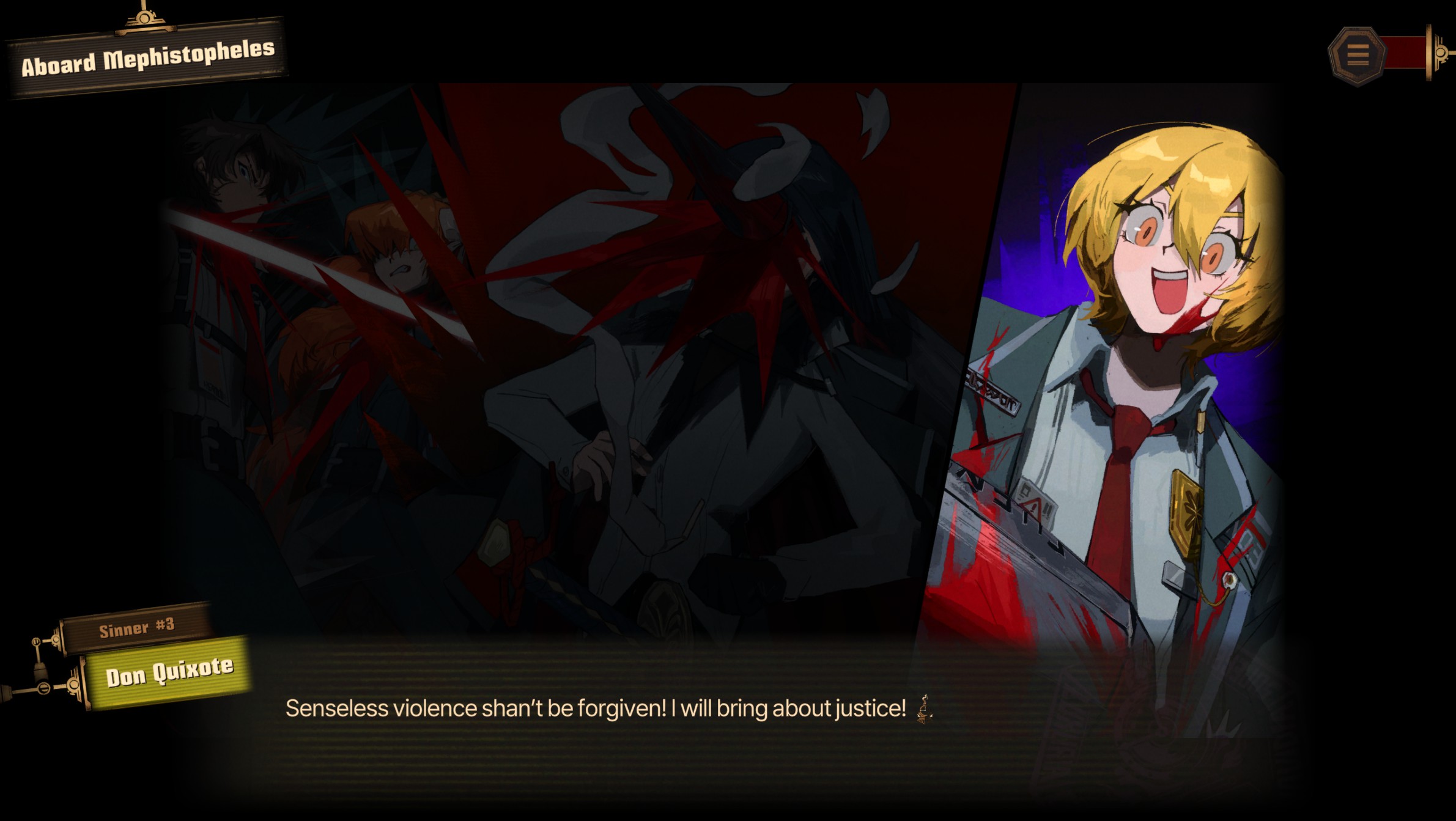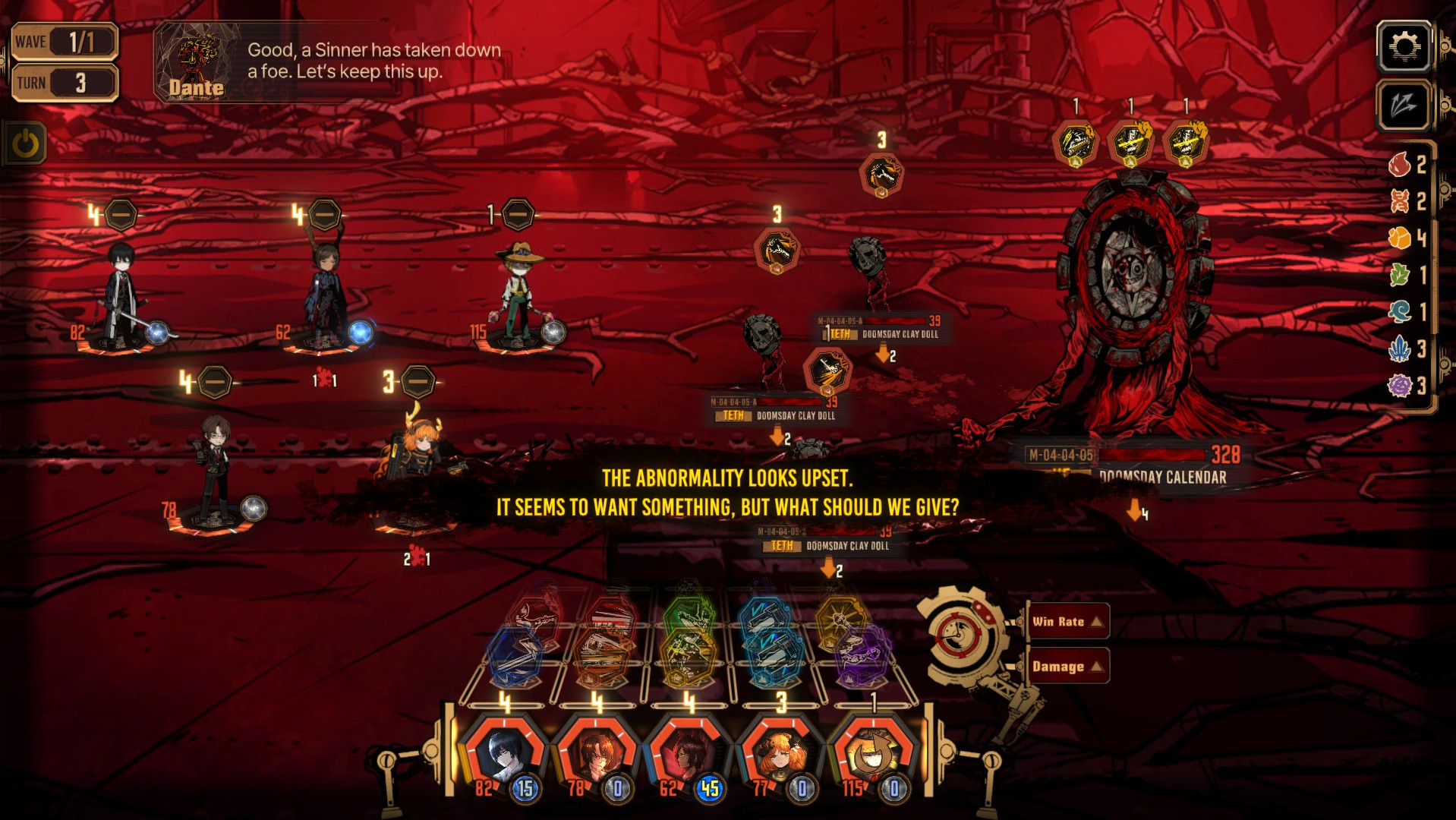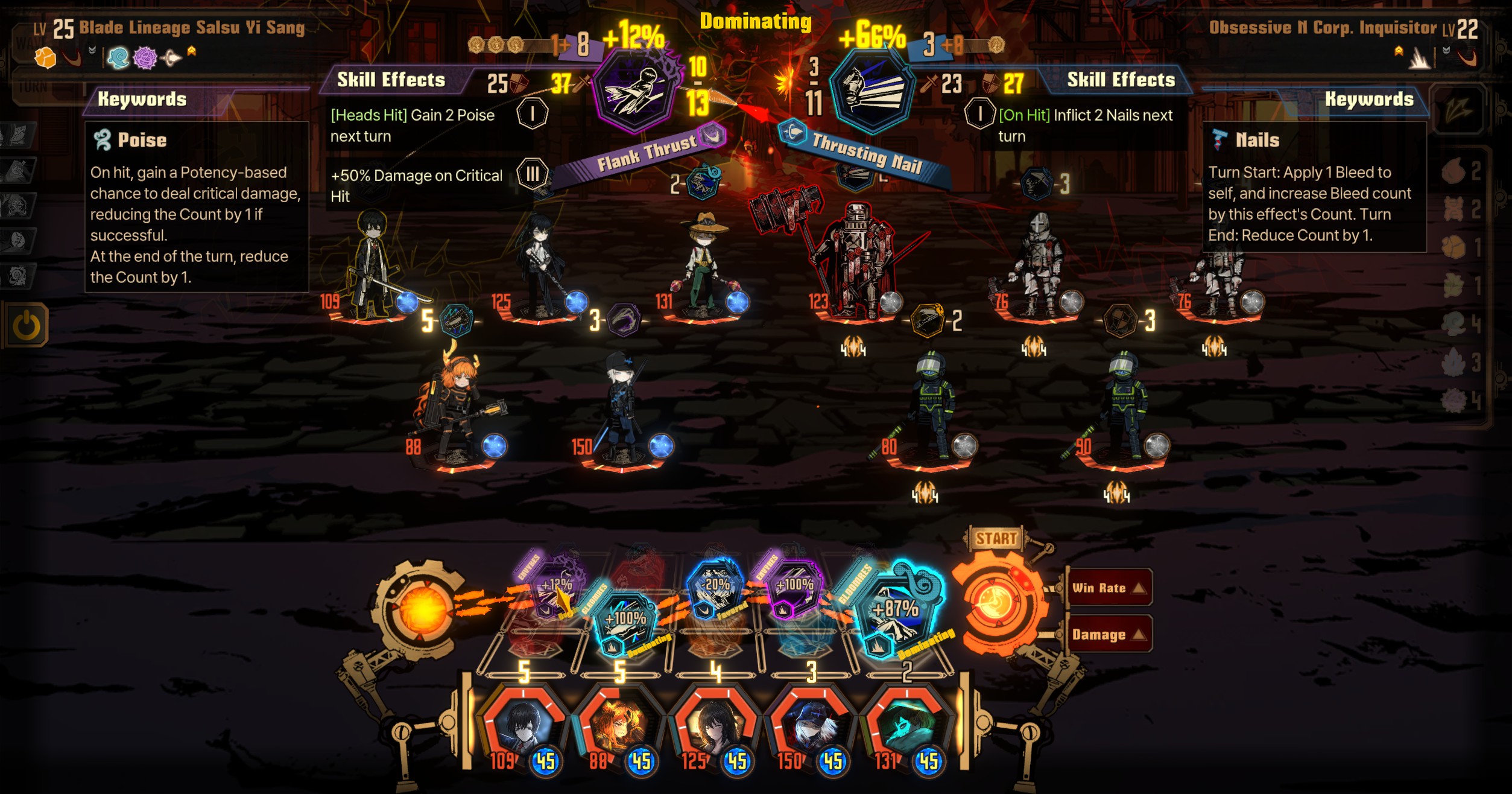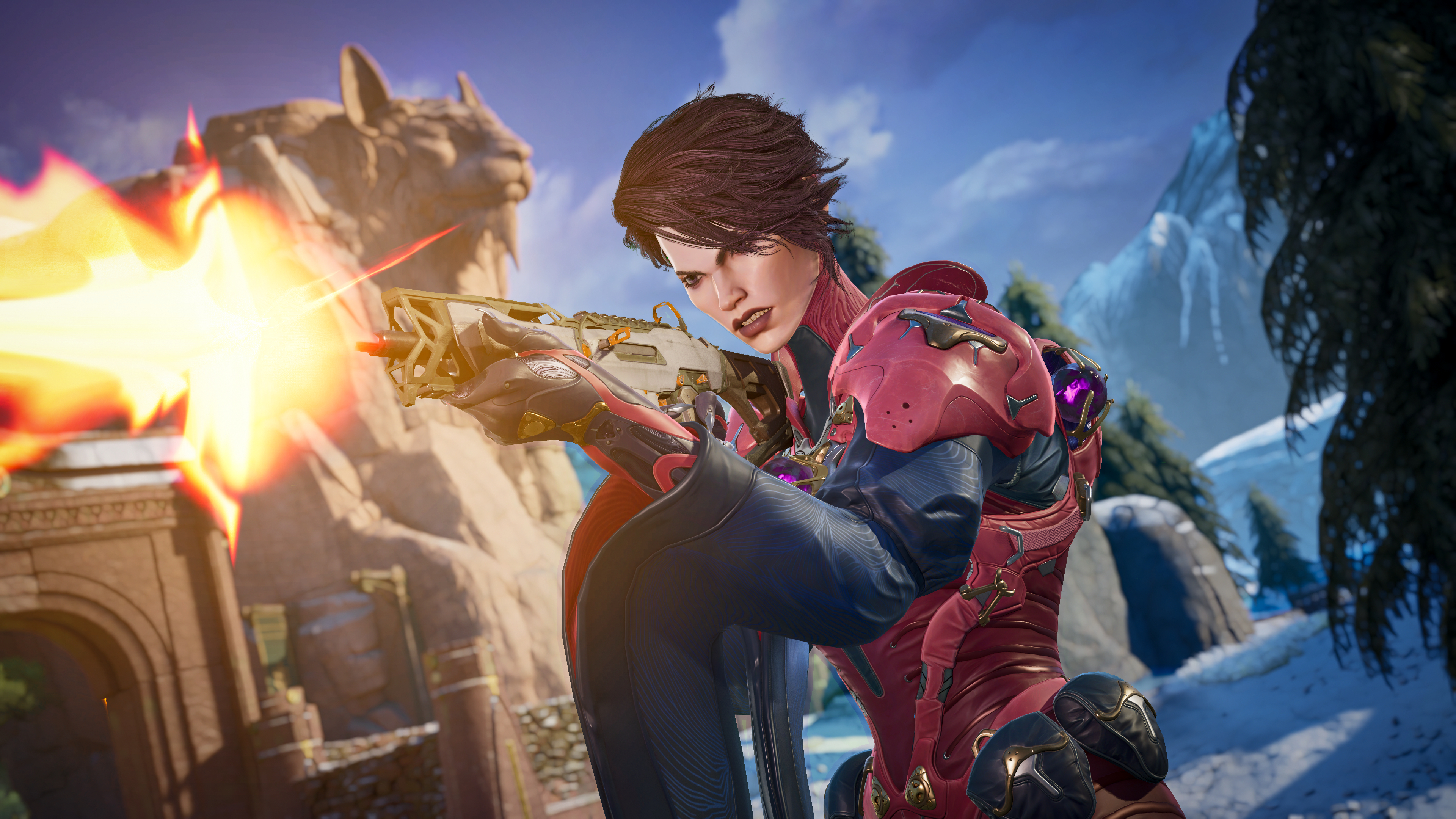This free-to-play RPG is a gory road-trip through one of indie gaming's darkest worlds
Dark, complex and rewarding—Limbus Company is as hardcore as mobile RPGs get.
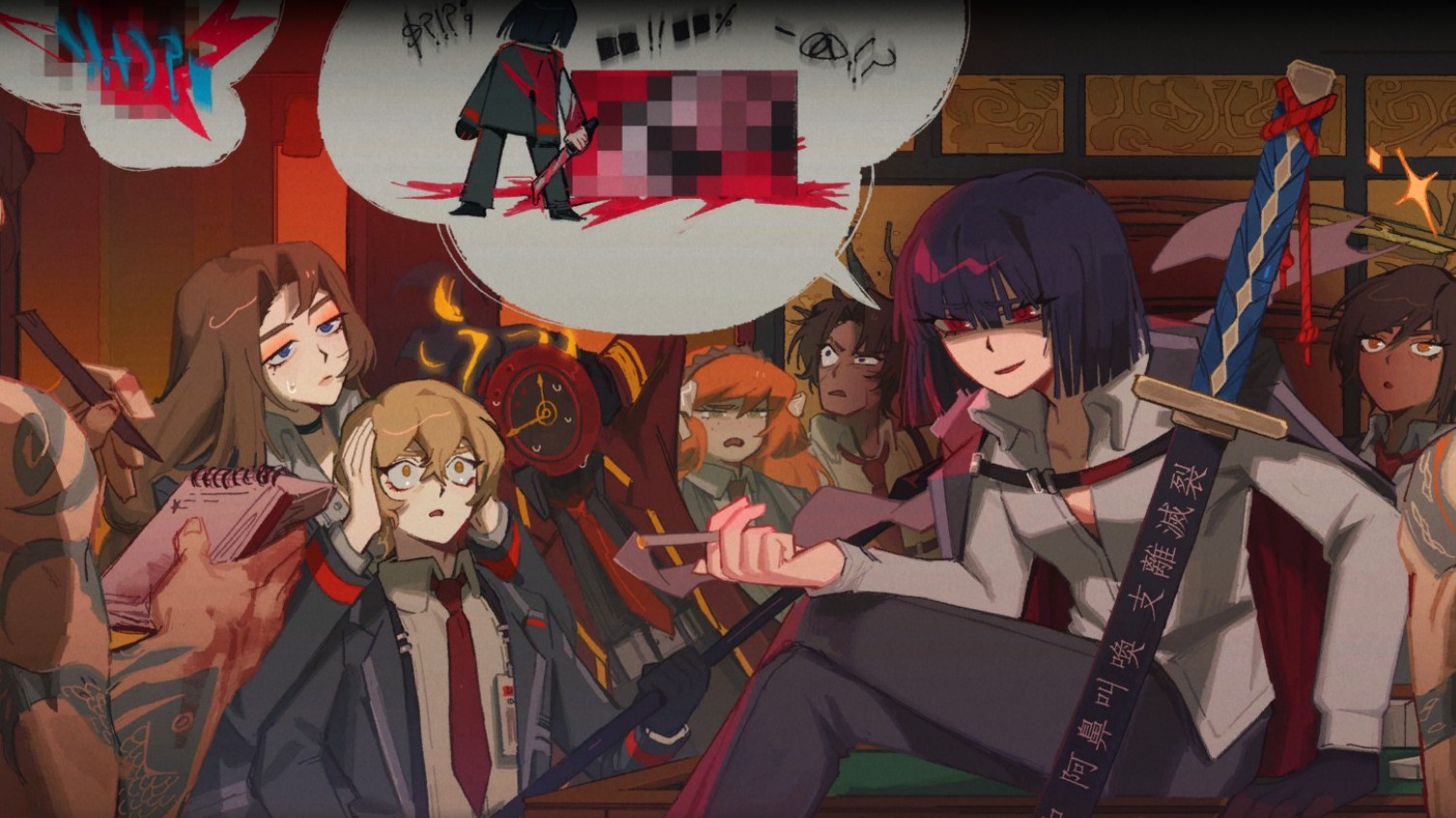
Keep up to date with the most important stories and the best deals, as picked by the PC Gamer team.
You are now subscribed
Your newsletter sign-up was successful
Want to add more newsletters?

Every Friday
GamesRadar+
Your weekly update on everything you could ever want to know about the games you already love, games we know you're going to love in the near future, and tales from the communities that surround them.

Every Thursday
GTA 6 O'clock
Our special GTA 6 newsletter, with breaking news, insider info, and rumor analysis from the award-winning GTA 6 O'clock experts.

Every Friday
Knowledge
From the creators of Edge: A weekly videogame industry newsletter with analysis from expert writers, guidance from professionals, and insight into what's on the horizon.

Every Thursday
The Setup
Hardware nerds unite, sign up to our free tech newsletter for a weekly digest of the hottest new tech, the latest gadgets on the test bench, and much more.

Every Wednesday
Switch 2 Spotlight
Sign up to our new Switch 2 newsletter, where we bring you the latest talking points on Nintendo's new console each week, bring you up to date on the news, and recommend what games to play.

Every Saturday
The Watchlist
Subscribe for a weekly digest of the movie and TV news that matters, direct to your inbox. From first-look trailers, interviews, reviews and explainers, we've got you covered.

Once a month
SFX
Get sneak previews, exclusive competitions and details of special events each month!
I wouldn't ever want to live in The City—the dystopian megalopolis at the heart of Korean indie studio Project Moon's games, comics and theme cafe—but it's a fascinating place to take a road-trip through. That's exactly what I've been getting out of Limbus Company, the studio's third game and their first to not be Steam-exclusive. This ambitious RPG is also on mobile. And free-to-play. And supported by gacha mechanics. And yes, I was as worried about that as you are.
After sinking around thirty hours into Limbus Company (and not feeling the need to spend any money on it either), I am very relieved to report that this is a perfectly valid successor to Lobotomy Corporation and Library Of Ruina. It's dark, gory and heavy on the dialogue and drama. It's also tough, complex and rewarding for players willing to sit down and untangle its often-confusing web of combat mechanics. It's about as hardcore as mobile RPGs get, and far closer to its PC-only predecessors than its new peers.
For complete newcomers to the world of Project Moon, Limbus Company is equal parts visual novel and turn-based RPG combat, a sequel to two other games, but mechanically and narratively all its own. In Limbus Company, a clock-headed amnesiac named Dante (you) leads a pack of twelve immortal 'Sinners' (a mismatched medley of eccentrics, each loosely based on a piece of classical literature or its author) on a quest to recover a series of techno-magical macguffins from abandoned corporate 'dungeons' beneath a dystopian cyberpunk mega-city. You also operate out of a carnivorous bus named Mephistopheles that must regularly be fed live human flesh. So, a normal corporate gig, then.
If that sounds like a lot to take in, then expect your head to spin once you get to the combat. For those familiar with Library Of Ruina's intensely complex deckbuilding battles, many of its concepts here are familiar if slightly streamlined. Newcomers are going to have to juggle a messy web of damage types, initiative and damage rolls, a multitude of status effects, buffs and debuffs plus seven consumable resources used to fuel limit break-esque 'EGO' attacks. A single round of combat can sometimes have a dozen combatants clashing against each other, with only the higher rolling attacker getting to deal direct damage.
It's tense and unpredictable fighting, but there's real strategy and tactics involved. Having twelve characters from the get-go—each with their own attacks and damage resistances—means team composition makes more of a difference than raw levels and stats, and you can only field a maximum of five characters at present. It's not unusual to switch your party members regularly, even moreso in the dungeons that make up the back half of each of the (currently three) story chapters, where damage and casualties persist between battles. It's entirely possible to win a pyrrhic victory where rolling back to the last save point is advisable. Potentially frustrating, but I've enjoyed the challenge it presents.
While many mobile RPGs feel like little more than a skinner box asking you to collect attractive anime characters and dance them through a threadbare story, almost everything here feels in service of Limbus Company's narrative. This is a densely written (and expertly translated) story with deep literary allusions and a tone oscillating from screwball comedy (chapter two had several laugh-out-loud moments for me) to unsettling horror. Anime fan-service this ain't either, with its cast not sexualised in the slightest, and its gacha systems relegated purely to combat to ensure minimal dissonance between your Ludos and your Narratives.
Multiverse of misadventure
Real effort seems to have been made to avoid the usual exploitative trappings.
The elephant in the room is how a sequel to a pair of self-contained retail games can go the free-to-play mobile route. The answer is pretty familiar at a glance—cash-shop currencies, random rolls for unlocks and a quarterly battle pass—but real effort seems to have been made to avoid the usual exploitative trappings. Rather than have you randomly roll for new characters, you draw alternative timeline versions of your twelve Sinners from the gacha pool with their own perks and disadvantages. These alternate versions tend to be more specialized and quirky, allowing for more creative party builds, but the default versions you start the game with can still carry you through the campaign as it currently stands.
Keep up to date with the most important stories and the best deals, as picked by the PC Gamer team.
Being a self-published game from a small studio, don't go expecting a technological tour-de-force from Limbus Company. I've been a fan of Project Moon since their first game, but the next miHoYo they are not. That said, I adore this game's aesthetics, leaning into slightly rough-edged webcomic stylings, with broad brushstrokes on everything from the backdrops to dialogue art panels and even the animatic-style combat sprites. Battles also leave the arenas littered with craters, gashes and shattered corpses, lending its fights a bit more energy. The whole game has a consistent and evocative look, building on the style they established for Library Of Ruina, without being overly complicated.
Where the game does go above and beyond is the audio. The entire story is well voiced (albeit only in Korean), with plenty of emotive performances. The music is where it really shines though; there are a few generic tracks used for dialogue, dungeon crawling and the main menus, but each of the current three chapters has six or more unique battle themes, and they're all bangers. Each chapter also wraps up with an ending theme sung by the primary character, and the current final boss has a multi-phase vocal theme by Mili, mirroring Ruina's bigger confrontations.
After a little over thirty hours of play and with no real money spent, I've currently exhausted all that Limbus Company has to offer (outside of its daily roguelike XP-booster dungeons) and had a great time doing so. Now begins the long wait for Project Moon to make good on their roadmap (which seems to be aiming for another three or four chapters by the end of the year) along with improvements to the Mirror Dungeons. They've also announced some major tweaks to the combat engine to make defensive skills more viable and the early-game less tricky. This one is a very active work-in-progress, and I can only see it improving over time.
Seeing how much I've enjoyed these first three chapters, and knowing Project Moon's penchant for wild escalation in their previous games, I'm bucked up and ready to ride. Newcomers to The City might want to start their tour with Library Of Ruina for a slightly slower introduction to this world and its complex combat.

The product of a wasted youth, wasted prime and getting into wasted middle age, Dominic Tarason is a freelance writer, occasional indie PR guy and professional techno-hermit seen in many strange corners of the internet and seldom in reality. Based deep in the Welsh hinterlands where no food delivery dares to go, videogames provide a gritty, realistic escape from the idyllic views and fresh country air. If you're looking for something new and potentially very weird to play, feel free to poke him on Bluesky. He's almost sociable, most of the time.
